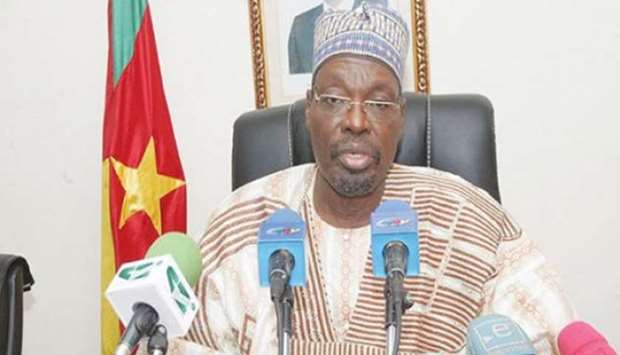* Rise of insurgency has damaged relations with Nigeria
* Nigerian military denies attackers crossed border
Gunmen attacked a border crossing in Cameroon's southwest on Thursday, launching their assault from Nigeria, according to security officials who witnessed the incident.
A Nigerian military spokesman denied the assailants had crossed over from Nigeria, and the incident is likely to further damage relations between the neighbours, strained over the rise of an Anglophone Cameroonian separatist movement.
Four security agents and a customs official described the incident, saying the unidentified gunmen launched their attack on the Ekok border post along Cross River.
"They came around 3 a.m. (0200 GMT). They came from Nigeria and there were many of them. They had heavy weapons. They had grenades. They were shooting everywhere," said one police source, who like the other witnesses asked not to be identified.
Speaking from Ekok by telephone and still clearly shaken, the police officer said the shooting lasted nearly three hours and the border remained closed on Thursday morning.
"Some of these guys came from the riverside (beneath the bridge). We don't know exactly which path they took, but all of them came from Nigeria," a second security source told Reuters.
The witnesses said several people had been injured in the attack, without giving details. But Communications Minister Issa Tchiroma Bakary, while acknowledging the attack, said no one had been hurt or killed.
"The attackers used explosives to destroy two vehicles belonging to the BIR (Rapid Intervention Brigade)," he said, declining to comment on whether the gunmen had come from Nigeria.
Nigerian military spokesman John Agim said Nigerian authorities had spotted armed men on the Cameroonian side of the border, but denied that they had either crossed from or into Nigeria.
Guerrilla campaign
Cameroon is made up mostly of territory that gained independence from France in 1960, which was combined a year later with a much smaller former British colony.
Today, around a fifth of the population speaks English, mostly along the Nigerian border. Many of them complain of marginalisation by the French-speaking majority.
An anglophone separatist movement, once limited to the fringe, has grown in strength and popularity as President Paul Biya's government has cracked down on peaceful protests.
Cameroonian military officials and pro-government media accuse Nigeria of sheltering the insurgents, who since last year have waged a guerrilla campaign to establish an independent homeland for the English-speaking minority.
Nigerian authorities arrested a leading member of the separatists and six of his followers as they held a meeting at a hotel in the capital Abuja earlier this month.
Reuters reported last month that Cameroonian troops crossed into Nigeria in pursuit of the rebels without seeking authorisation from Nigeria, provoking a behind-the-scenes rift between two nations with a history of fraught relations.
The militaries of Cameroon and Nigeria repeatedly clashed over the disputed Bakassi peninsula in the 1980s and 90s. The status of the territory was settled in Cameroon's favour by The Hague-based International Court of Justice in 2002 and in recent years the two countries have cooperated extensively to stamp out the Islamist militant group Boko Haram.
More than 43,000 refugees, nearly three times more than previously thought, have fled to Nigeria amid Cameroonian military operations against the separatists, Nigerian aid officials said on Thursday.

